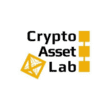-
- Conference
- Posted 6 days ago
37th RSEP International Conference on Economics, Finance and Business
Between 22 Nov and 23 Nov in Rome, Italy
-
- Conference
- Posted 1 week ago
38th RSEP International Conference on Economics, Finance and Business
Between 30 Jan and 31 Jan in Dubai, United Arab Emirates
-
- Conference
- Posted 1 hour ago
CALL FOR PAPERS - Conference on “Fiscal and Monetary Policies for Inclusive Growth in Developing and Emerging Markets"
Between 16 Jul and 17 Jul
-
- Conference
- Posted 4 days ago
IARIW-WB-CIEM Conference on Improving Well-being Measurement in Developing Countries for Better Evidence-based Policies
Between 2 Oct and 3 Oct
-
- Conference
- Posted 1 week ago
Call for Papers 10th LEER Conference Education Economics
Between 3 Apr and 4 Apr in Leuven, Belgium
-
- Conference
- (Online)
- Posted 2 weeks ago
Call for Papers: Crypto Asset Lab Conference 2025
Between 16 Jan and 17 Jan
-
- Conference
- Posted 2 weeks ago
14th International Conference of the Financial Engineering and Banking Society
Between 11 Jun and 13 Jun in Montpellier, France
-
- Conference
- Posted 2 weeks ago
New Environmental Challenges for Fiscal, Monetary, and Macroprudential Policy: Bayes Business School 16-17 January 2025
Between 16 Jan and 17 Jan in Milan, Italy
-
- Conference
- Posted 4 weeks ago
Call for Papers EcoMod2025 International Conference on Economic Modeling and Data Science
Between 3 Sep and 5 Oct in Stuttgart, Germany
-
- Conference
- Posted 3 weeks ago
CALL for PAPERS for the 17th FIW-Research Conference
Between 20 Feb and 21 Feb in Vienna, Austria
-
- Conference
- Posted 3 weeks ago
Aging & Social Change: Fifteenth Interdisciplinary Conference, Linköping University, Norrköping, Sweden
Between 25 Sep and 26 Sep in Norrköping, Sweden -
- Conference
- Posted 1 month ago
Wits Global Fintech Conference
Between 14 Nov and 15 Nov in Johannesburg, South Africa
-
- Conference
- Posted 4 weeks ago
Fifteenth International Conference on Health, Wellness & Society, University of Granada, Granada, Spain
Between 4 Sep and 5 Sep in Granada, Spain -
- Conference
- Posted 4 weeks ago
Eighteenth International Conference on the Inclusive Museum, University of San Jorge, Zaragoza, Spain
Between 15 Sep and 17 Sep in Zaragoza, Spain -
- Conference
- (Partially Online)
- Posted 4 weeks ago
Sixteenth International Conference on The Constructed Environment, Universidad de Navarra, Pamplona, Spain
Between 14 May and 15 May in Pamplona, Spain -
- Conference
- (Partially Online)
- Posted 1 month ago
50th EBES Conference - Lisbon
Between 8 Jan and 10 Jan in Lisbon, Portugal -
- Conference
- (Partially Online)
- Posted 1 month ago
IV International Conference «Innovative Trends in International Business and Sustainable Management»
Between 5 Dec and 7 Dec -
- Conference
- Posted 1 month ago
Call for Papers: EMANES Annual Conference 2024
Between 11 Dec and 13 Dec in Barcelona, Spain -
- Conference
- Posted 1 month ago
9TH INTERNATIONAL CONFERENCE ON EMPIRICAL ISSUES IN INTERNATIONAL TRADE & FINANCE (EIITF) 12th AND 13th December, 2024
Between 12 Dec and 13 Dec in Kolkata, India
-
- Conference
- Posted 1 month ago
International Order or Disorder: Marginal Adjustments or Reformation with the Global South?
Between 28 Nov and 30 Nov in Hammamet, Tunisia -
- Conference
- Posted 1 month ago
CALL FOR PAPERS 27th Annual Research Conference De Nederlandsche Bank, Amsterdam November 21-22, 2024
Between 21 Nov and 22 Nov in Amsterdam, Netherlands
-
- Workshop, Conference
- Posted 1 month ago
17th Workshop on Labour Economics, April 03 - 04, 2025
Between 3 Apr and 4 Apr in Trier, Germany -
- Conference
- Posted 1 month ago
18th Workshop on Political Economy
Between 29 Nov and 30 Nov in Dresden, Germany -
- Workshop, Conference
- Posted 1 month ago
19th BiGSEM Doctoral Workshop
Between 16 Dec and 17 Dec in Bielefeld, Germany -
- Conference
- Posted 1 month ago
13th UECE Conference on Economic and Financial Adjustments_Lisbon, 4 July 2025
Between 4 Jul and 4 Jul in Lisbon, Portugal
Pagination







